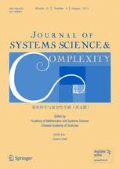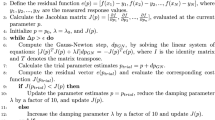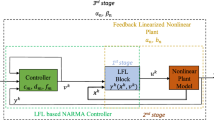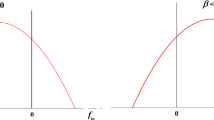Abstract
In this paper, finite sample properties of virtual reference feedback tuning control are considered, by using the theory of finite sample properties from system identification. To design a controller in closed loop system structure, the idea of virtual reference feedback tuning is proposed to avoid the identification process corresponding to the plant model. After constructing one identification cost without any knowledge of plant model, the author derives one bound on the difference between the expected identification cost and its sample identification cost under the condition that the number of data points is finite. Also the correlation between the plant input and external noise is considered in the derivation of this bound. Furthermore, the author continues to derive one probability bound to quantify this difference by using some probability inequalities and control theory.
Similar content being viewed by others
References
Guardabassi G, Virtual reference direct method: An off line approach to data based control system design, IEEE Trans. Automatic Control, 2002, 45(5): 954–960.
Campi M C, Virtual reference feedback tuning: A direct method for the design of feedback controllers, Automatica, 2002, 38(4): 1337–1346.
Campi M C and Lechimi A, An application of the virtual reference feedback tuning method to a benchmark problem, European Journal of Control, 2003, 9(2): 66–76.
Weyer E, Finite sample properties of system identification of ARX models under mixing conditions, Automatica, 2000, 36(9): 1291–1299.
Weyer E, Finite sample properties of linear model identification, IEEE Trans. Automatic Control, 1999, 44(9): 1370–1383.
Campi M C and Weyer E, Finite sample properties of system identification methods, IEEE Trans. Automatic Control, 2002, 47(8): 1329–1334.
Sala A and Esparza A, Extensions to virtual reference feedback tuning: A direct method for the design of feedback controllers, Automatica, 2005, 41(8): 1473–1476.
Novara C, Direct feedback control design for nonlinear systems, Automatica, 2013, 49(5): 849–860.
Tanaskovic M and Fagiano L, On the optimal worst case experiment design for constrained linear systems, Automatica, 2014, 50(12): 3291–3298.
Novara C, Direct design of discrete time LPV feedback controllers, IEEE Trans. Automatic Control, 2015, 60(10): 2819–2824.
Forgione M and Bombois X, Data driven model improvement for model based control, Automatica, 2015, 52(2): 118–124.
Fagiano L and Novara C, Learning a nonlinear controller from data: Theory, computation and experimental results, IEEE Trans. Automatic Control, 2016, 61(7): 1854–1868.
Wang J H, Virtual reference feedback tuning control design for closed loop system, Journal of Control and System Engineering, 2016, 4(1): 1–9.
Formentin S and Piga D, Direct learning of LPV controllers from data, Automatica, 2016, 65(3): 98–110.
Tanaskovic M and Fagiano L, Data driven control of nonlinear systems: An on line direct approach, Automatica, 2017, 75(1): 1–10.
Author information
Authors and Affiliations
Corresponding author
Additional information
This research was supported by Jiangxi Provincial National Science Foundation under Grant No. 20142BAB 206020.
This paper was recommended for publication by Editor LIU Yungang.
Rights and permissions
About this article
Cite this article
Wang, J. Finite Sample Properties of Virtual Reference Feedback Tuning Control. J Syst Sci Complex 31, 664–676 (2018). https://doi.org/10.1007/s11424-017-6165-x
Received:
Revised:
Published:
Issue Date:
DOI: https://doi.org/10.1007/s11424-017-6165-x




